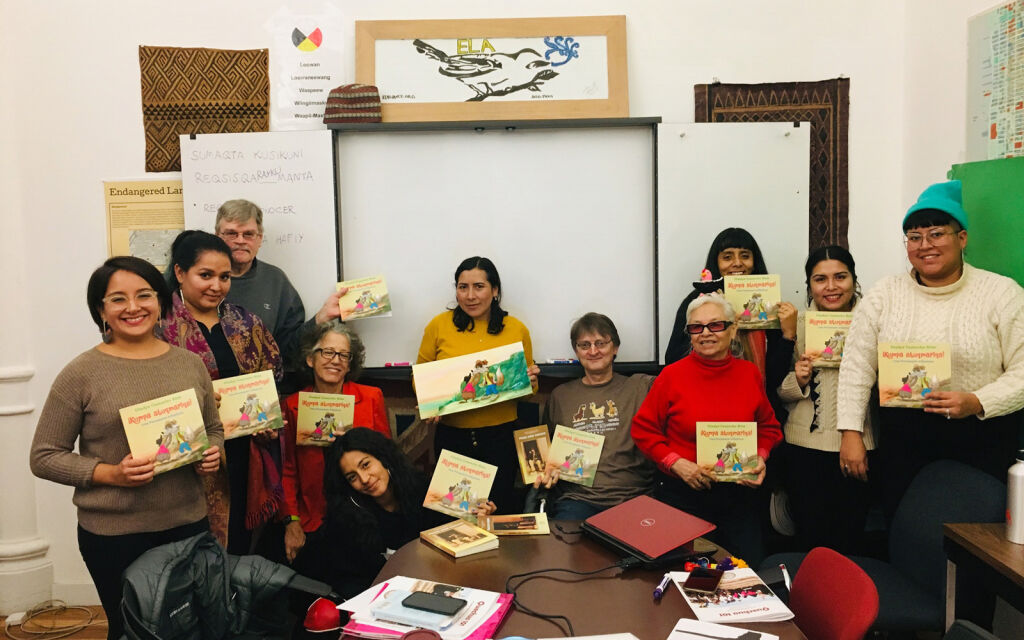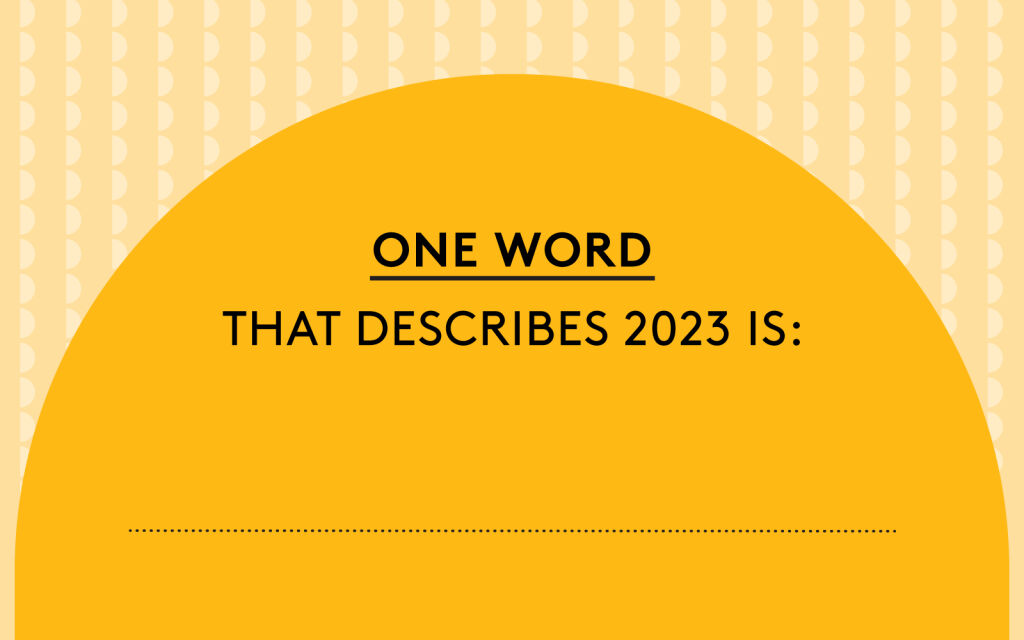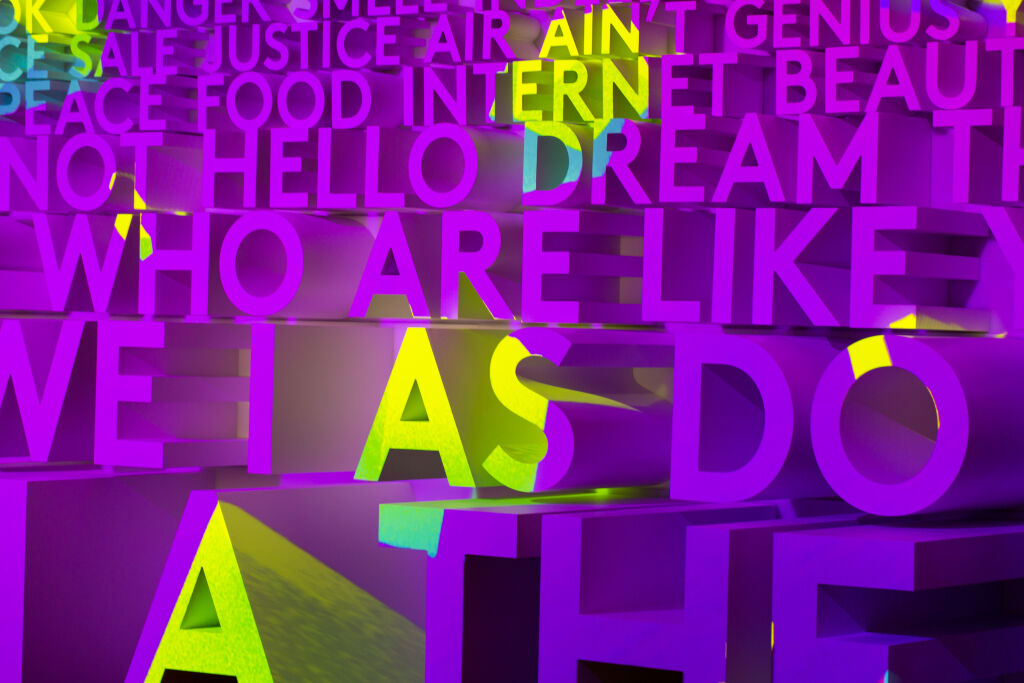Mundolingua: Exploring a World of Languages in Paris
Tucked away in Paris’s 6th Arrondissement, a short walk from the Luxembourg gardens, is a curious museum. Stacks of books and dictionaries share space with dozens of digital screens, the intimate exhibit spaces at once cozy and quirky. Words in many languages and alphabets adorn the walls, and, as you wander from the first floor down to the building’s 17th-century cellar, you are surrounded by languages at every turn.
This is the Mundolingua museum of language.
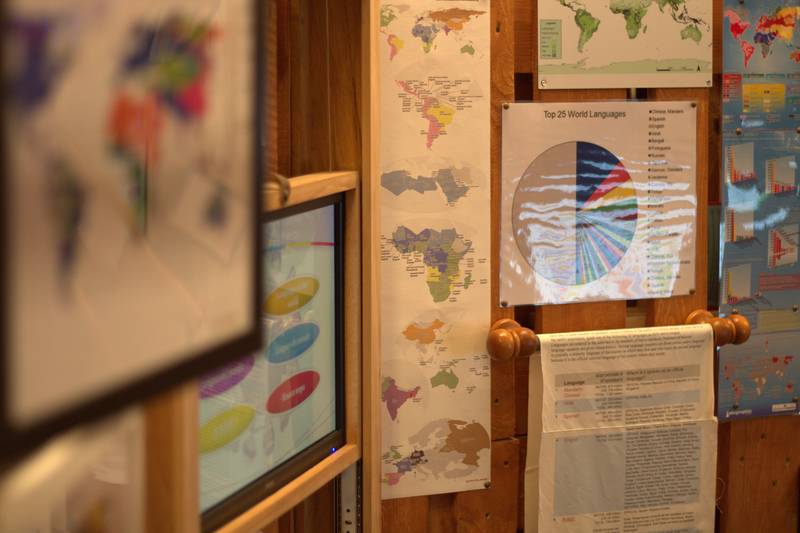
A glimpse of the Mundolingua museum. Photo from mundolingua.org.
The museum’s founder, Mark Oremland, first had the idea for Mundolingua when he found that there was no place for language and linguistics enthusiasts like himself to visit. He realized that he would have to create that space for himself. When he first drifted into the building on Rue Servandoni that now serves as the museum’s home, he was looking for a place to set up a travel agency. Eventually, though, he realized the space’s potential to hold the museum he’d been longing for.
To transform this small Paris property into a word wonderland, he enlisted a dedicated linguistics grad student to help with the research. Informative presentations (translated into English, French, Spanish, Chinese, Arabic, and Russian) light up on small screens throughout the building, covering topics such as language diversity, endangered languages, sociolinguistics, and animal language. Many of the areas of language and linguistics that fascinated him finally had a home in his museum.
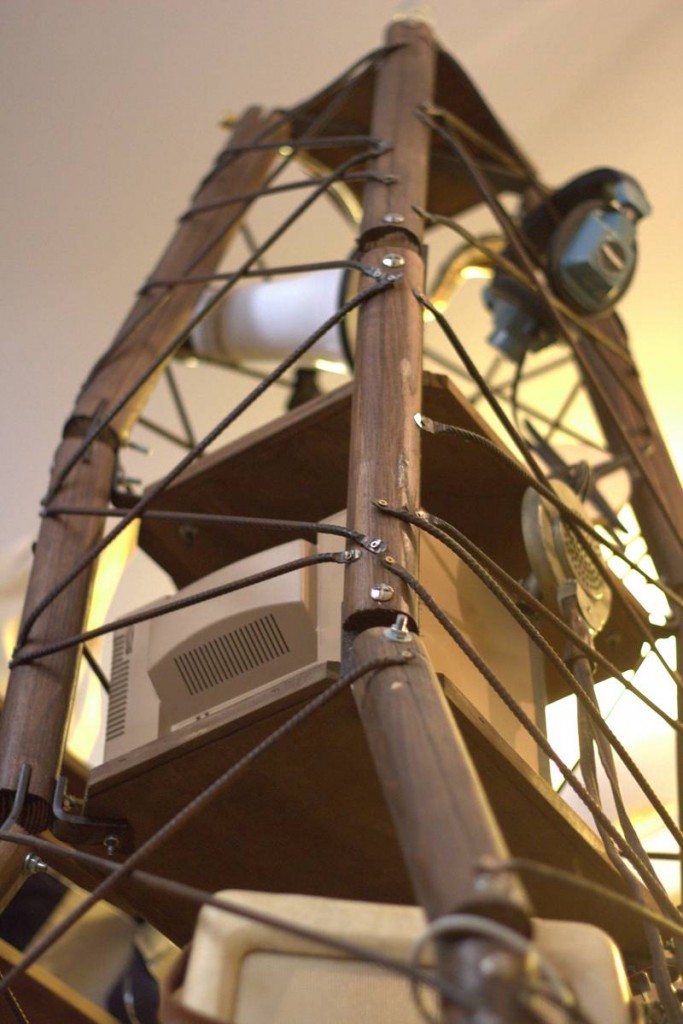
Mundolingua’s Tower of Babel. Photo from mundolingua.org.
Though Mundolingua is not collection-based (in the way a museum of history or art would be), a few physical pieces serve as focal points. Detailed recreations of the Dead Sea Scrolls invite visitors to explore ancient languages on the basement level, while a Tower of Babel rises in the middle of the stairwell.
Having physical artifacts comes with a few challenges, of course. Oremland’s initial concept for the Dead Sea Scrolls, he told us in a phone interview, was a “cone that people can stand inside and read as it turns around,” offering a more three-dimensional experience to viewers. However, after measuring the space, he found that he didn’t quite have the room. “About three weeks out from opening we had a total change of strategy,” he said. The team quickly had replicas of the scroll made in lieu of the larger installation.
Another massive challenge was translating all of the material in the museum into six languages, given the different nuances and structures of each language. Different Spanish translators that Oremland consulted offered “eight different valid translations for the title ‘World of Language and Linguistics.’” If eight different translators could each take a slightly different approach to that five-word phrase, who knows how many ways the entire content of the museum could have been translated — and how much could have been lost in translation.
Despite potential translation troubles, Oremland is optimistic about his museum’s potential impact for all age groups. Though traffic from school groups was significantly slowed by the 2015 terror attacks in Paris, he still sees students and language learners of all ages filtering through his museum and engaging with the material. Since visitors include local kids as young as five as well as senior groups visiting the city, he finds that “age is surprisingly inaccurate as to an indication of how much someone will get out of a visit.” Instead, genuine interest in language keeps visitors scrolling through the museum’s many videos, quizzes, and informational texts.
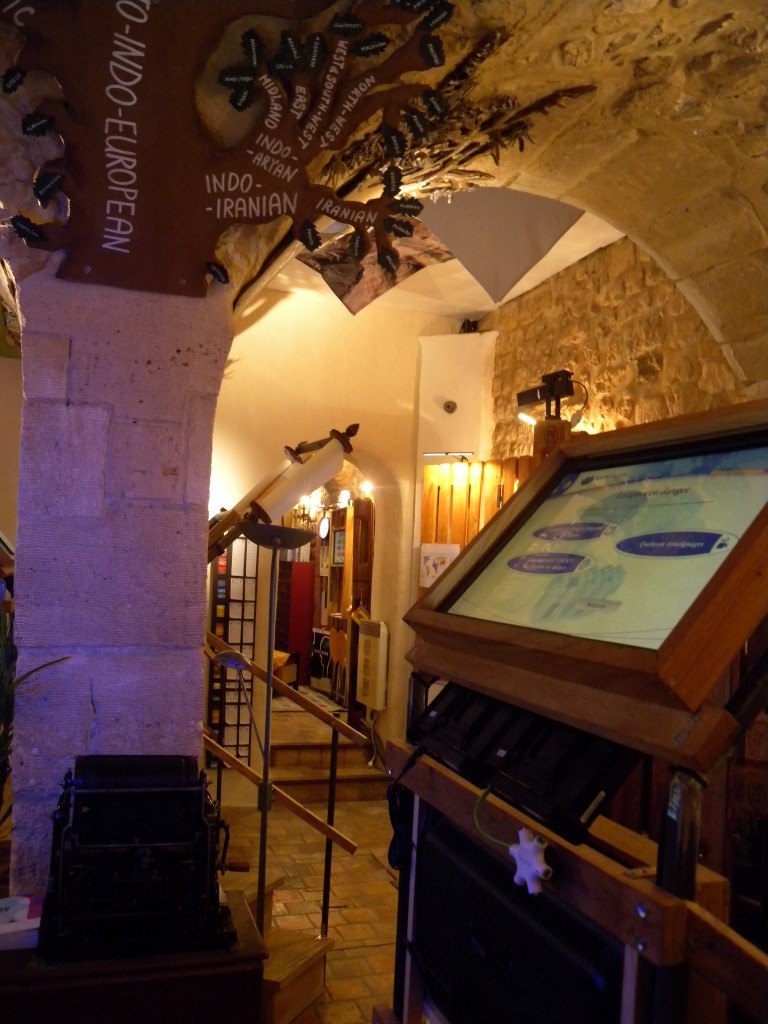
The Mundolingua cellar. Photo from mundolingua.org.
Oremland hopes that, beyond simply providing a space for language lovers like himself, the museum can make visitors “more aware of the huge variety of things happening out there in languages” and encourage them to “have a greater respect for other languages” that they may have previously regarded as inferior. He hopes that Mundolingua can introduce the curious visitor to a whole world of language they had never contemplated before and encourage understanding.
Oremland is also hopeful for the future of Planet Word. He notes that the D.C. museum will take “a different sort of approach, and a much larger one,” expanding on Mundolingua’s mission with a larger space and an extensive team of exhibit designers, linguists, architects, and museum professionals. Above all, though, he encourages the Planet Word team to enjoy the journey of creating the museum.
“It’s the period where you have the creativity and it comes to life — the concepts, the dreams, the ideas,” he says. “Savor every moment of that, because when I look back at it, at the creation of Mundolingua, that was probably the most joyous part.”
